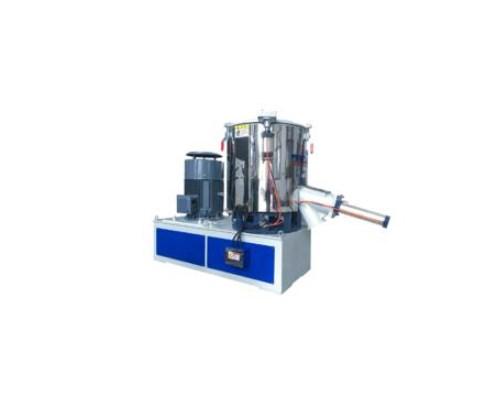Industrial extruder machines are the unsung heroes of the manufacturing world, quietly shaping the future of plastics and polymers in countless applications. These machines are the heart of the process that transforms raw polymer materials into finished products, from simple packaging to complex engineering components. The term "industrial extruder machine" encompasses a broad range of equipment designed to melt, mix, and force thermoplastic or elastomeric materials through a die to form continuous profiles.
The versatility of industrial extruder machines is unmatched in the industry. They are used in the production of a wide array of products, including pipes, films, sheets, profiles, wires, and cables. These machines are not just limited to the plastics industry; they also find applications in the automotive, construction, electronics, and medical sectors. The demand for industrial extruder machines is on the rise due to the growing need for lightweight, durable, and cost-effective materials.
One of the key advantages of industrial extruder machines is their ability to process a variety of materials, including polyethylene, polypropylene, PVC, and polystyrene, among others. This flexibility allows manufacturers to produce customized products tailored to specific industry needs. The machines are also known for their efficiency, as they can continuously produce high-quality products at a rapid pace, which is essential in a competitive market.
The design of industrial extruder machines has evolved to meet the increasing demands for precision and control. Modern machines are equipped with advanced features such as computerized control systems, which allow for precise temperature and pressure regulation. This level of control is crucial for ensuring the consistency and quality of the extruded products. Additionally, the advent of twin-screw and multi-screw extruders has further enhanced the capabilities of these machines, enabling them to handle more complex materials and processes.
Maintenance and reliability are also critical factors in the selection and operation of industrial extruder machines. These machines are built to withstand the rigors of continuous operation, with robust construction and durable components. Regular maintenance is essential to ensure the longevity and performance of the equipment. Manufacturers invest in high-quality materials and engineering to minimize downtime and maximize the output of their industrial extruder machines.
Energy efficiency is another area where industrial extruder machines have seen significant improvements. With the increasing focus on sustainability, there is a demand for machines that consume less energy while maintaining high productivity. Manufacturers are responding to this challenge by developing more efficient designs and incorporating energy-saving technologies into their machines.
In conclusion, industrial extruder machines are a cornerstone of the plastics and polymers industry. They offer a combination of versatility, efficiency, and reliability that is unmatched. As technology continues to advance, we can expect these machines to become even more sophisticated, further expanding their capabilities and applications. The future of industrial extruder machines looks bright, with ongoing innovation ensuring that they remain at the forefront of polymer processing for years to come.
https://www.extruderfactory.com/product/
